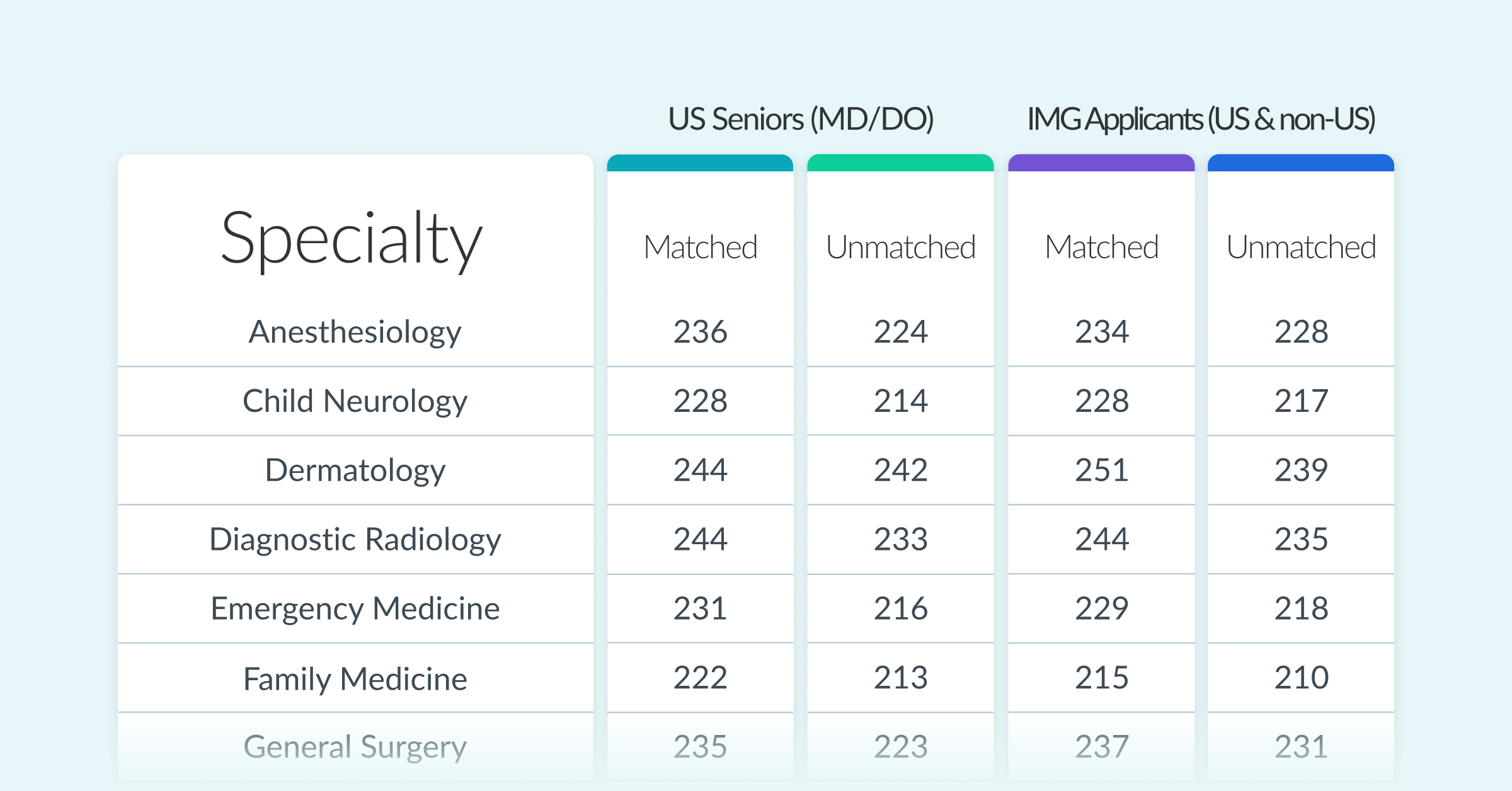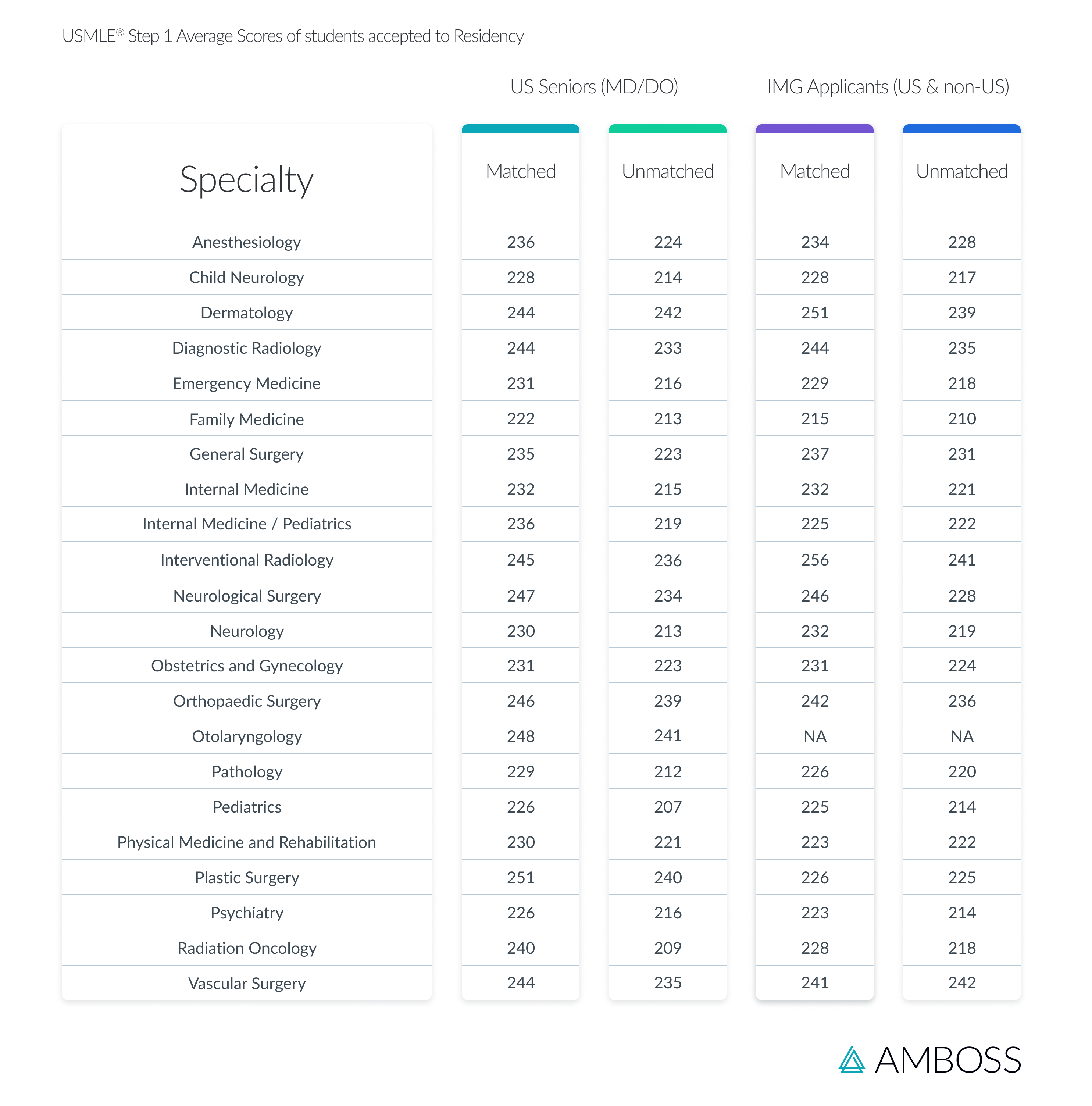Average 2022 USMLE® Step 1 Match Scores by Medical Specialty

Note: USMLE® Step 1 exam became pass/fail in 2022. For that reason, 2022 is one of the last National Residency Match Program (NRMP) Match cycles where 3-digit Step 1 scores are a factor in the match process).
If you’re curious to know what scores students needed to match your desired medical specialty back in 2022, take a look at the tables below. Data is available for US MD & DO students as well as IMGs. The data comes from the NRMP’s Charting Outcomes in the Match report.
The average USMLE Step 1 match scores by medical specialty

While getting a high USMLE Step 1 match score has historically helped students match into their desired residency, this is no longer the case. There are many other factors that will contribute to your success. These include, but are by no means limited to, conducting clinical research, getting good letters of recommendation, having an impressive CV that highlights your medical and relevant extracurricular activities, and having a successful residency interview. This is attested by the NRMP’s own assessment of the data:
“Despite the fairly strong relationship between USMLE Step scores and matching to a preferred specialty, the distributions of scores show that program directors consider other qualifications. A high score is not a guarantee of matching, and a low score is not a bar to matching.”
What's more, now that Step 1 is pass/fail, there is even more importance placed on the Step 2 exam, which still uses the 3-digit format. You can find the average Step 2 match scores by medical specialty here.
The important thing to remember? These changes don't make studying for Step 1 any less important. In fact, the best thing med students can do is to prepare for the exam as if it is still score-based. Why? Because there is a huge crossover between Step 1 content and Step 2. So, if you don’t fully prepare for Step 1, it will make doing well on Step 2 a much greater challenge. To get insights and advice from a student who took Step 1 pass/fail, check out this blog post.
Finally, always remember that you’re so much more than your score. Whether you’re conducting clinical research, shining on the wards, or coming up with the next big thing to revolutionize medical education (nudge nudge), there are many paths that will lead you toward a great career in medicine.
Preparing for exams or practicing in the clinic? No matter what stage you’re at, we’ve got you covered. Start your free AMBOSS trial today.
Chart data: Data is from the Charting Outcomes in the Match: Senior Students of U.S. MD Medical Schools, Charting Outcomes in the Match: Senior Students of U.S. DO Medical Schools report, and Charting Outcomes in the Match: International Medical Graduates. The NRMP has no affiliation with AMBOSS.
Only those who gave consent to use their information in the NRMP research are included in the matched and unmatched data.

